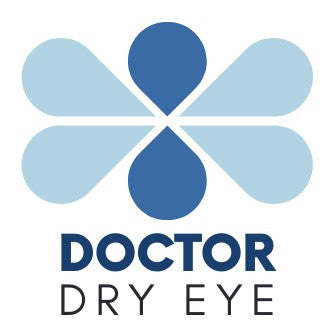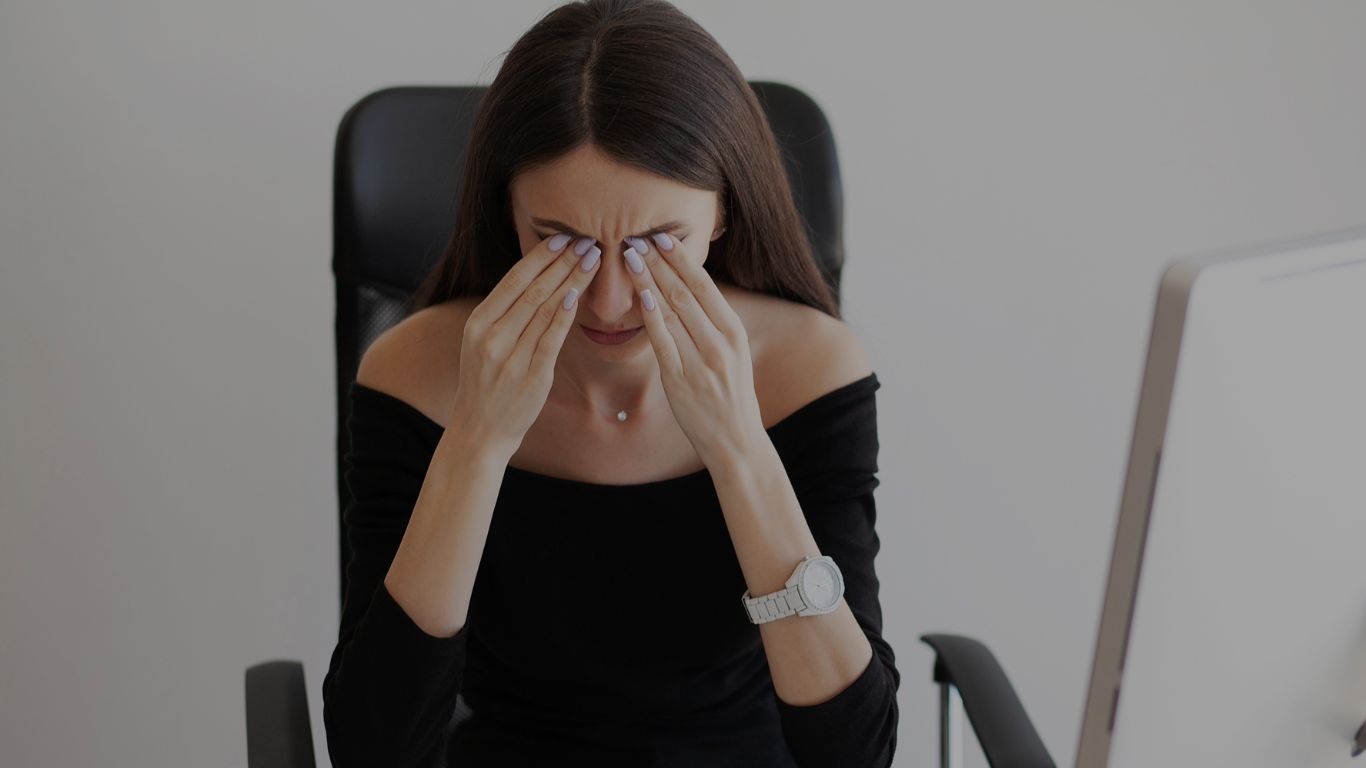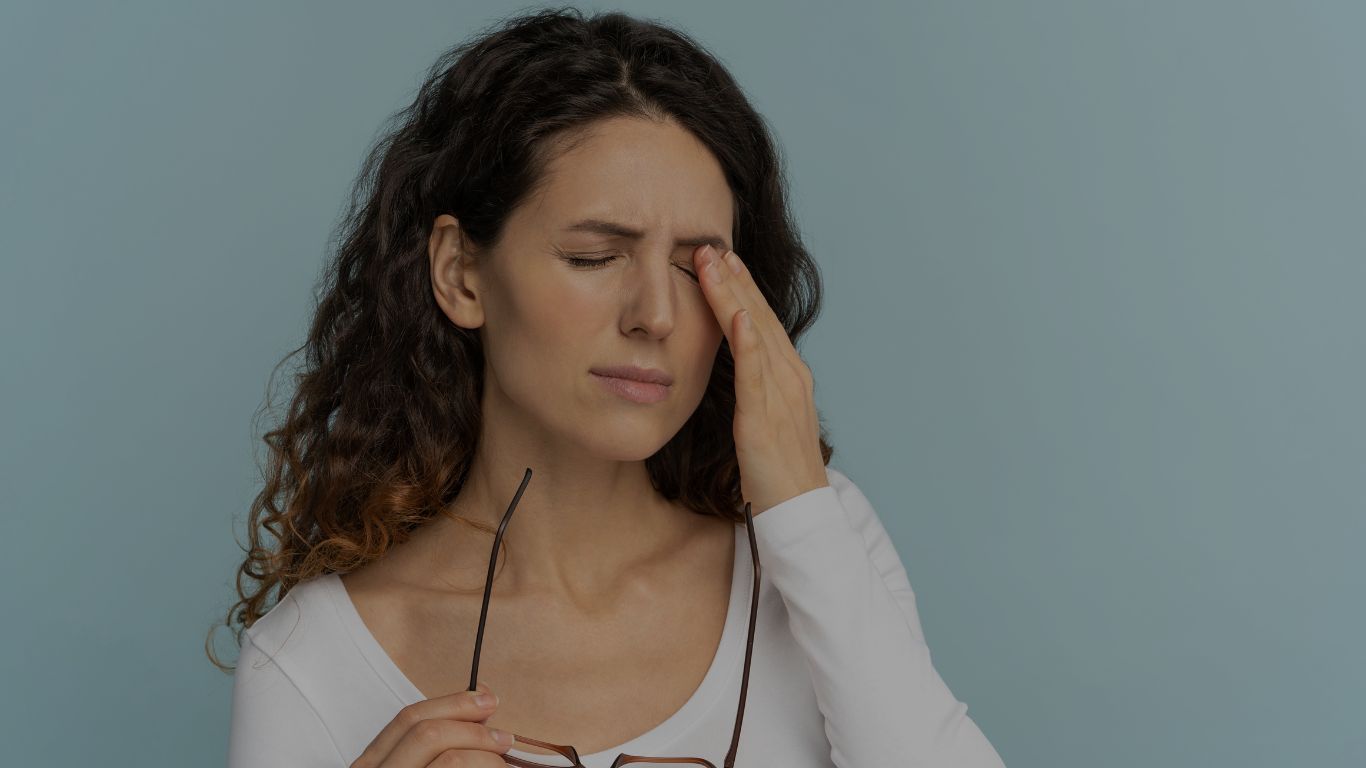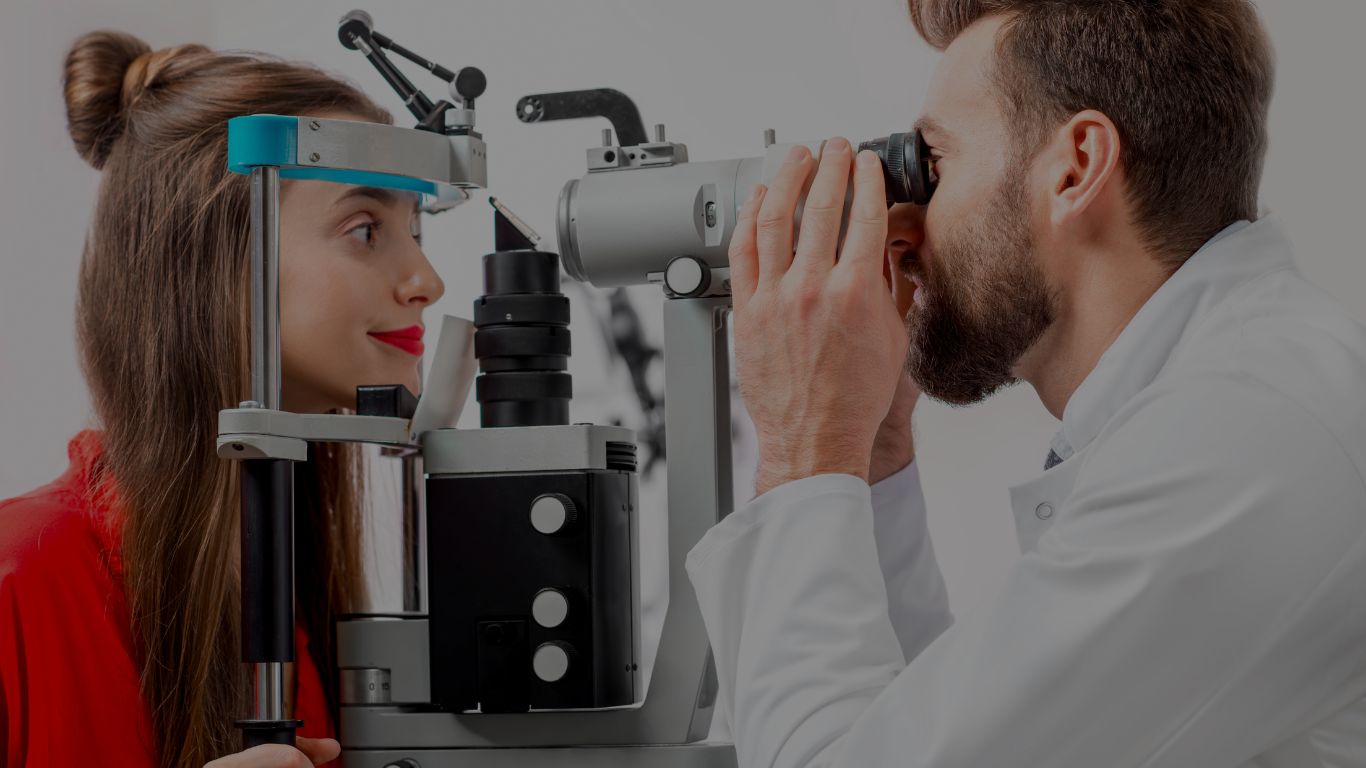Irritation in the eyes is a common and uncomfortable problem that can range from mild to severe. There are many causes, which include allergies, dryness, infection, and many more.
In this comprehensive review of eye irritation, you’ll learn about the causes, treatments, and preventative measures you can take against eye irritation.
What Is Eye Irritation?
Eye irritation is a common and often uncomfortable feeling that many people experience. It refers to a sensation of discomfort, scratchiness, or inflammation in the eyes. Maybe patients describe it as a “foreign body sensation”, or “like a grain of sand in is their eye”.
The symptoms of eye irritation can range from mild discomfort to redness, pain, and discharge.
It's important to identify the underlying cause of eye irritation in order to receive appropriate treatment.
Over-the-counter artificial tear solutions or warm compresses can provide relief for mild cases of dry eye. More severe cases may require prescription eye drops or other treatments recommended by an eye doctor.
If you are experiencing persistent or worsening eye irritation, it's important to see an eye doctor for a proper diagnosis and treatment plan.
What Causes Eye Irritation?
Eye irritation can be caused by a variety of factors, including dry eye, allergic reactions, exposure to irritants, eye infections, contact lenses, computer vision syndrome, and fatigue.
Dry eye occurs when the eyes don't produce enough tears, or the tears evaporate too quickly, leading to a feeling of scratchiness and discomfort.
Allergic reactions can cause red, itchy, and watery eyes. Exposure to irritants such as smoke, chemicals, wind, and dust can cause the eyes to become irritated and uncomfortable.
Eye infections such as bacterial or viral conjunctivitis can cause redness, pain, and discharge in the eyes.
Wearing contact lenses that are too old, don't fit properly, or are not cleaned correctly can also cause eye irritation.
Spending long periods of time looking at a computer screen or other digital devices can cause eye strain, leading to eye irritation.
Prolonged periods of intense focus or eye strain can also cause eye fatigue and irritation. Identifying the underlying cause of eye irritation is important in order to receive appropriate treatment and relief.
Infections or inflammation inside the eye can result in severe pain and are an emergency. These can include bacterial infections from contact lenses, which are one of the leading causes of permanent vision loss among otherwise young and healthy people.
If you are experiencing eye irritation it is important to see a doctor to properly diagnose the underlying cause.
What Medical Conditions Cause Eye Irritation?
If you are experiencing eye irritation and believe it may be related to a medical condition, it's important to see an eye doctor for a proper diagnosis and treatment plan. Early treatment can help prevent or minimize further damage to the eyes.
There are several medical conditions that can cause eye irritation, some of which include:
Dry Eye Syndrome
Dry eye syndrome occurs when the eyes don't produce enough tears, or the tears evaporate too quickly, leading to a feeling of scratchiness and discomfort.
Conjunctivitis
Conjunctivitis may be caused by bacterial infection, viral infection, or allergies. It can result in associated symptoms of redness, itching, discharge, and watery eyes.
Blepharitis
Blepharitis is an inflammation of the eyelids that can cause red, itchy, and swollen eyelids, as well as a burning or gritty sensation in the eyes.
Uveitis
Uveitis is an inflammation of the “uvea”, or the middle layer of the eye. This can cause symptoms of redness, pain, and sensitivity to light.
Corneal Abrasions
Corneal abrasions are scratches on the clear outer layer of the eye that can cause redness, pain, and sensitivity to light.
What Are The Treatments For Eye Irritation?
Over-The-Counter Treatments
While it is important to see a doctor to diagnose the underlying cause of eye irritation, dry eyes are one of the most common causes.
There are several over-the-counter treatments available for eye irritation from dry eye syndrome, including:
Artificial Tears
Artificial tears are eye drops that mimic the natural tears of the eyes and can help relieve dry eye symptoms.
Anti-allergy Eye Drops
Anti-allergy eye drops can help relieve itching, redness, and swelling caused by allergies. Of course, it’s important to be sure your symptoms are cause by allergies before using these as a treatment.
Warm Compresses
Placing a warm compress over the eyes can help soothe irritated eyes and relieve discomfort. They work by improving the function of the meibomian glands which produce important oil for the tear film.
Omega-3 Supplements
Omega-3 fatty acids, which are found in certain foods and supplements, can help reduce inflammation and improve the health of the eyes.
Sunglasses
Wearing sunglasses can protect the eyes from wind, dust, and other irritants, helping to prevent eye irritation.
It's important to note that over-the-counter treatments may not be suitable for everyone and can interact with other medications. If you are experiencing persistent or worsening eye irritation, it's important to see an eye doctor for a proper diagnosis and treatment plan. An eye doctor can recommend the best treatment options based on your specific needs and health history.
Prescription Medication Treatments
Prescription medications can be used to treat eye irritation from dry eyes. Some of the prescription medications that can be used to treat eye irritation include:
Corticosteroid Eye Drops
Corticosteroid eye drops can help reduce inflammation and swelling in the eyes, which can be useful for treating conditions such as uveitis or allergic conjunctivitis.
Antibiotic Eye Drops
Antibiotic eye drops can help treat eye infections, such as bacterial conjunctivitis, by killing the bacteria that are causing the infection.
Nonsteroidal Anti-inflammatory Eye Drops
Nonsteroidal anti-inflammatory eye drops can help relieve pain and reduce inflammation in the eyes.
Cyclosporine Eye Drops
Cyclosporine eye drops can help reduce inflammation and improve tear production in people with dry eye syndrome.
It's important to note that prescription medications should only be used under the guidance of an eye doctor. Self-medicating or using prescription medications inappropriately can lead to further complications and make the condition worse. An eye doctor can determine the best course of treatment based on the underlying cause of the eye irritation and your overall health.
Procedure Treatments
There are procedures that can be performed to improve eye irritation in certain situations. One of the most common treatments is called “thermal compression”.
Thermal Compression / Lipiflow
Lipiflow is the most common procedure which can be performed in your doctor’s office.
Lipiflow helps to open the meibomian glands in patients with meibomian gland dysfunction or blepharitis.
Punctual plugs
Punctal plugs decrease the rate that tears are drained away from the ocular surface. This allows your tears to stay around longer, thereby improve eye irritation cause by dry eyes.
You doctor may be able to place punctual plugs in a quick in-office procedure.
How Long Does It Take For Eye Irritation To Heal?
The length of time it takes for eye irritation to heal can vary depending on the underlying cause. In some cases, eye irritation may resolve within a few hours or a day, while in other cases, it may take several days or even weeks or longer to fully heal.
Some common causes of eye irritation, such as exposure to dust or wind, can often be quickly relieved with over-the-counter treatments or simple over-the-counter measures. Other causes, such as dry eye syndrome or eye infections, may require more persistent treatment and management.
In general, it's important to take steps to manage and relieve eye irritation as soon as possible to prevent further complications and allow the eyes to heal. This may include using artificial tears, wearing sunglasses, or avoiding irritants.
If the eye irritation is persistent or worsening, it's important to see an eye doctor for a proper diagnosis and treatment plan. An eye doctor can recommend the best course of action based on the underlying cause of the eye irritation and your overall health.
How Can You Prevent Eye Irritation?
Preventing eye irritation can help reduce the likelihood of developing more severe problems and ensure healthy, comfortable eyes. Some simple steps you can take to prevent eye irritation include:
Protect your eyes from wind, dust, and other irritants
Wearing sunglasses or protective eyewear can help keep your eyes safe from wind, dust, and other irritants that can cause eye irritation.
Keep your eyes well-lubricated
Dry eyes can be a common cause of eye irritation. To help prevent dry eyes, use artificial tears, take frequent breaks from screen time, and increase your water intake.
Manage your allergies
Allergies can cause itching, redness, and swelling in the eyes, which can lead to eye irritation. Managing your allergies, such as taking antihistamines or avoiding allergens, can help reduce the likelihood of developing eye irritation.
Practice good eye hygiene
This includes making sure contact lens wearers are not sleeping in their lenses and disposing of them properly.
It also means making sure to use quality eye and facial products, and properly removing any make-up or cosmetics applied around the eyes.
Lastly, regular warm compresses can help maintain health meibomian glands to prevent age-related gland disfunction, called blepharitis.
By taking these steps to prevent eye irritation, you can help keep your eyes healthy and comfortable and reduce the likelihood of developing symptoms. If you are experiencing persistent or worsening eye irritation, it's important to see an eye doctor for a proper diagnosis and treatment plan.
When Should You Visit A Doctor for Eye Irritation?
We recommend seeing an eye doctor for any eye irritation symptoms. Additionally, there are certain symptoms that may accompany eye irritation that are worrisome, and should prompt more urgent or emergent care.
These symptoms include:
- Severe pain
- Thick, yellow or green discharge
- Blurry vision
- Double vision
- Sensitivity to light
If you are experiencing any of these symptoms, it's important to see an eye doctor for a proper diagnosis and treatment plan. In some cases, eye irritation may be a sign of a more serious condition, such as an eye infection or injury, and prompt medical attention can help prevent further complications.
Summary
We hope this comprehensive article about eye irritation was helpful. There are many causes of eye irritation. It’s important to determine the underlying cause or causes, and consult with an eye doctor about the treatment options that are best for you.




